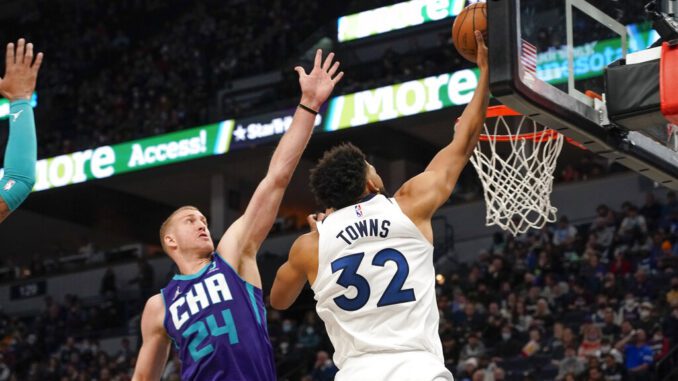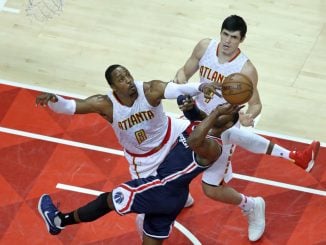
CHARLOTTE — There was tangible energy on Jan. 21 inside the Spectrum Center. The Charlotte Hornets had just delivered their home crowd a triumphant 121-98 victory over Oklahoma City, winning their third in a row during a stretch in which they had won 10 out of 14 games.
The Hornets were six games above .500 and seemingly in the driver’s seat for a playoff spot, and spirits were high in Charlotte as coach James Borrego and his young team led by budding stars LaMelo Ball and Miles Bridges provided one of the NBA’s most lethal offensive attacks.
At that moment, it would have been unfathomable to predict the Hornets would lose 11 of their next 14 games, spiraling into the All-Star break with a 29-31 record and the reality that a postseason appearance is anything but a done deal.
Looking ahead to the final 22 games, the optimistic outlook for Charlotte is that it still contains most of the components that guided it to success earlier this season: a variety of electric shooters, a fast-paced court rhythm and the capability to rain down points — as proven in a 158-126 win last month.
One missing ingredient in the formula is Gordon Hayward, who is out indefinitely with a left ankle sprain he sustained on Feb. 7. While an X-ray on his leg came back negative, it remains to be seen if Hayward will be able to return.
In the meantime, the rest of his teammates have had some time to also rejuvenate this week.
“We’ll decompress for the next five days, get back together and get ready for the final 22, but this group has been through a lot so far,” Borrego said following Thursday’s 111-107 double-overtime loss to Miami. “We need this. It’s going to be great for us, to get away from it and refresh. We’ll get ready for that final stretch run, get some healthy bodies, clear our mind and be ready to go.”
As the Hornets prepare for Friday night’s home game against Toronto, the team will look to find answers for a disappointing 10-game stretch. The only two wins during that period were against Pistons — statistically the worst team in the league — and the Lakers, who were without LeBron James and Anthony Davis.
Throughout the season, Charlotte has been an offense-heavy squad that can outscore any team on any given night. But it’s also a group that lacks a true rim-protecting center, leading to struggles on the defensive end of the court.
On the final day before the trade deadline on Feb. 10, Hornets general manager Mitch Kupchak tried to patch that problem by trading for center Montrezl Harrell. While the former Washington Wizards big man has impressively averaged 17.8 points and 7.8 rebounds during his four games with the Hornets, he has not provided the defensive help Charlotte sorely needs.
As unreliable as the Hornets’ defense has proven to be, Charlotte has often been able to outscore its problems. That hasn’t happened over the last three weeks due to the team’s struggles from the 3-point line. Long-range shooting slumps have plagued Terry Rozier and Kelly Oubre Jr, Charlotte’s two most trigger-friendly 3-point contributors, while Ball and Bridges have struggled from deep as well.
Aside from an 18-for-42 night on Feb. 11, the Hornets have made just 33% of their attempts (54 of 163) from behind the arc during the past six games — a percentage that would place Charlotte at 25th in the league. Due to the rough spell, the Hornets have dropped from second place to ninth in overall team 3-point success (35.7%).
But despite the struggles of late, the Hornets still have a roadmap to make a playoff run if things turn around in March and April.
“We have to stay even-keeled throughout the ebbs and flows of the game and stay poised in the high-pressure situations,” Oubre said last week. “A team can go on a run, but if we keep our cool and trust that our system and the things that we do will work, then I feel like we’ll be better off. Consistency is key.”



